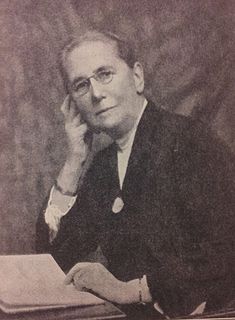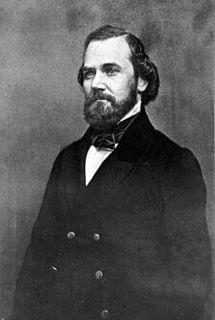A Quote by Rodney Stark
Although it has been fashionable to deny it, anti-slavery doctrines began to appear in Christian theology soon after the decline of Rome and were accompanied by the eventual disappearance of slavery in all but the fringes of Christian Europe. When Europeans subsequently instituted slavery in the New World, they did so over strenuous papal opposition, a fact that was conveniently 'lost' from history until recently. Finally, the abolition of New World slavery was initiated and achieved by Christian activists.
Related Quotes
As for slavery, there is no need for me to speak of its bad aspects. The only thing requiring explanation is the good side of slavery. I do not mean indirect slavery, the slavery of proletariat; I mean direct slavery, the slavery of the Blacks in Surinam, in Brazil, in the southern regions of North America. Direct slavery is as much the pivot upon which our present-day industrialism turns as are machinery, credit, etc. … Slavery is therefore an economic category of paramount importance.
It was not Christianity which freed the slave: Christianity accepted slavery; Christian ministers defended it; Christian merchants trafficked in human flesh and blood, and drew their profits from the unspeakable horrors of the middle passage. Christian slaveholders treated their slaves as they did the cattle in their fields: they worked them, scourged them, mated them , parted them, and sold them at will. Abolition came with the decline in religious belief, and largely through the efforts of those who were denounced as heretics.
I think comedy allows people to accept the more difficult parts of history. And history, if it's presented wrong, is just very depressing, particularly the history of slavery. If slavery is presented properly, it's a great story. But I think that within the commercial world of storytelling in which I live, there haven't been many strong works that discuss slavery in ways that are palatable and funny and interesting to the reader.
In the era of slavery, you could be a so-called Afro-Cuban one day and a so-called Black American the next day, or vice versa. I mean there was all this back and forth, and there was a lot of opposition in Black America to slavery in Cuba in particular, because slavery in Cuba lasted until the 1880s.
Adrian Rogers told us as often as he could he took the Bible literally. He illustrated by saying he believed the world was created in six 24-hour days. And he repeated this to make an impression upon us. In private (Jerry Vines was with us), I asked Rogers what he did with the slavery passages of the New Testament. Did he take them literally? He paused and said, 'Well, I believe slavery is a much-maligned institution. If we had slavery today, we would not have this welfare mess.'
A wise man will not leave the right to the mercy of chance, nor wish it to prevail through the power of the majority. There is but little virtue in the action of masses of men. When the majority shall at length vote for the abolition of slavery, it will be because they are indifferent to slavery, or because there is but little slavery left to be abolished by their vote. They will then be the only slaves. Only his vote can hasten the abolition of slavery who asserts his own freedom by his vote.
In terms of America, I think any profound consideration is bound to return us to the notion of twins because, though you certainly can contend there are many Americas, our history has been binary from the beginning, with its hairline fracture down the country's center between what American has wanted to be and what America has been. That fracture is slavery, of course. To some extent it's still slavery, in that collectively we refuse to come to grips with the American fact of slavery.






































